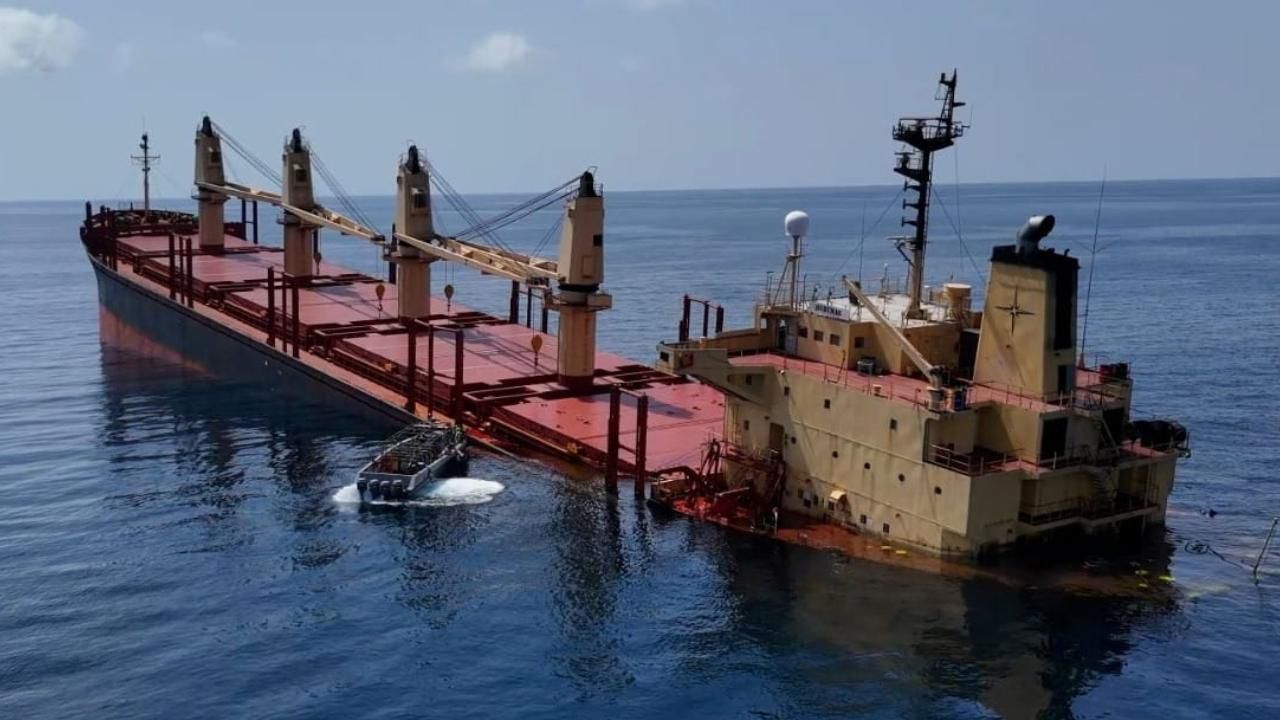The Yemeni government issued a statement confirming the sinking, revising earlier reports from the UK Maritime Trade Operations. The attack occurred 15 to 25 nautical miles from the Yemeni port of Al-Mukha, with the UKMTO stating that the vessel had been dragging anchor.
Sky News previously estimated its drift at around 37 nautical miles north in the Red Sea.
Efforts to salvage the ship for towing to a port, possibly Djibouti or Saudi Arabia, were hindered by the volatile security situation in the region.
The vessel's gradual sinking had been documented on Yemeni TV, contradicting earlier images showing the stern still above water.
The Yemeni government, blaming Houthi militants for the "environmental disaster," emphasized the danger posed by the 41,000 tons of fertilizer, oils, and fuel carried by the Rubymar.
A significant 18-mile oil slick had formed behind the damaged ship, as reported by the U.S. Central Command.
The government expressed concerns about the potential environmental impact, citing the risk of an algae bloom that could harm coral, marine animals, and desalination plants in the region.
They called for international action against the militants, denouncing their "recklessness and indifference to catastrophic repercussions."
Notably, this marks the most significant casualty since Houthi attacks began in November, with a total of 55 commercial ships targeted. The Rubymar, managed from Lebanon, becomes the first vessel to sink in these attacks, signaling heightened risks for ships still operating in the Red Sea despite efforts by leading shipping firms to divert vessels away.






